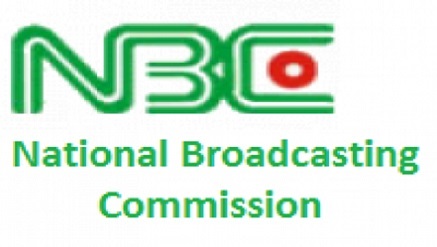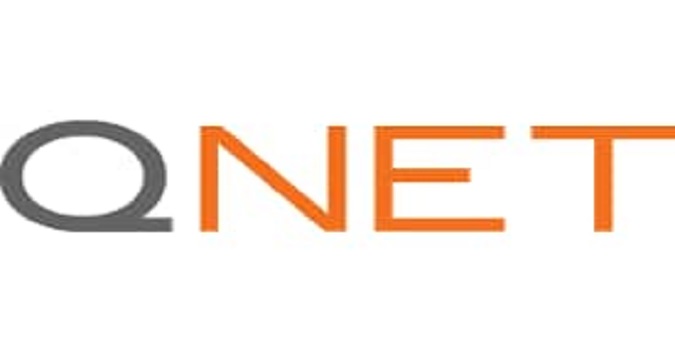Broadcasting
ITU to Mark Switchover from Analogue to Digital TV with Symposium

The deadline for the transition from analogue to digital broadcasting, set for 17 June 2015, is applicable for all countries belonging to ITU Region-1 (Europe, Africa, the Middle East and Central Asia) and the Islamic Republic of Iran.
ITU will mark this key milestone with a thought-provoking symposium at its headquarters in Geneva to highlight the inherent advantages offered by digital terrestrial broadcasting today and in the future.
The above deadline for switching off analogue television broadcasting in the UHF band was set by ITU Member States at the Regional Radiocommunication Conference in 2006, known as the GE06 Regional Agreement.
The symposium will bring experts from around the world to examine the objectives of the transition from analogue to digital broadcasting and take a look at advances in television, such as ultra-high-definition TV (UHDTV), Integrated broadcast-broadband (IBB) systems, and smart TV platforms as well as building a sustainable ecosystem for digital TV in the future and its spectrum requirements.
New technologies related to digital broadcasting, including UHDTV, hybrid HbbTV, extended image dynamic range, higher frame rates, and immersive audio, will be demonstrated by leading developers and experts from the BBC, EBU, Dolby, Fraunhofer and others.
Digital TV broadcasting offers many advantages over analogue systems for end-users, operators and regulators.
Apart from increasing the number of channels, digital systems can provide new innovative services, such as interactive TV, electronic programme guides and mobile TV as well as transmit image and sound in high-definition (HDTV) and ultra-high definition (UHDTV). Digital TV requires less energy to ensure the same coverage as for analogue while decreasing overall costs of transmission.
The more efficient use of radio spectrum brought on by digital TV also allows for the so-called digital dividend resulting from the freeing up of spectrum for use by other services, such as mobile broadband.
Countries around the world are actively working towards the switchover to digital television. Several countries that are parties to the GE06 Agreement, as well as many who are not, have already made the transition; others are in the process of doing so.
“As the specialized agency of the United Nations dealing with information and communication technologies, including spectrum and satellite orbit issues, ITU will keep supporting the development of new technologies,” said ITU Secretary-General Houlin Zhao.
“I congratulate administrations around the world which have successively switched to digital television broadcasting and I also wish all success to those still in the process of doing so.”
Broadcasting
QNET Reaffirms Integrity: Dissociates from Mighty Infinity Millionaire Ltd in Nigeria

QNET, a global leader in direct selling focused on wellness and lifestyle products, firmly disassociates itself from any unlawful activities being conducted by unauthorized individuals or entities fraudulently using the QNET name to mislead and exploit members of the Nigerian public.

These concerns have resurfaced following the arrests of several suspects in Niger State and the Federal Capital Territory, Abuja.
QNET commends the Economic and Financial Crimes Commission (EFCC) for its actions in apprehending those responsible and is actively supporting the authorities to prevent further misuse of its brand.
QNET Says NO to Brand Misuse and Criminal Misrepresentation
QNET is a 27-year-old international direct selling company offering wellness and lifestyle products through a network of independent distributors.
These individuals are customers who have purchased QNET products and have chosen to build their own direct selling business using our platform. They operate independently and are not employees of QNET.
Unfortunately, certain third-party entities such as Mighty Infinity Millionaire Ltd, that have no affiliation to QNET, and operate without our oversight or recognition, have grossly misrepresented the QNET business model and acted in a manner that is in no way a representation of QNET business ethics or values.
We unequivocally state that such entities and individuals are not affiliated with or endorsed by QNET. QNET reiterates that Transblue Nigeria Limited remains our sole partner in Nigeria.
Operating Within Legal and Ethical Boundaries
In Nigeria, QNET operates strictly within the legal and regulatory frameworks through our official local partner, Transblue Nigeria Limited. We remain committed to ethical business practices and protecting both our brand and the public from exploitation. We urge members of the public to remain vigilant, verify the authenticity of individuals or entities claiming affiliation with QNET, and report any suspicious activity to the appropriate authorities.
Statement from QNET’s Regional Leadership & Legal Nigerian Partner
Responding to the fraudulent activities being perpetrated in QNET’s name, Biram Fall, Regional General Manager of QNET for Sub-Saharan Africa, states, “We are extremely disturbed by the way unscrupulous individuals have misused the QNET brand to deceive innocent Nigerians with false promises. At QNET, our values are rooted in honesty and empowering people to build better lives through genuine means. We remain committed to supporting law enforcement agencies in their efforts to bring these fraudsters to justice and encourage the public to verify any claims of affiliation with QNET before getting involved.”
To avoid further confusion, QNET wishes to emphasize the following:
● QNET does not operate or endorse any physical or online university under the name “Q-University” in Nigeria. QNET is part of a larger business conglomerate that operates the Quest International University in Malaysia, which does not have any overseas campus.
● QNET is not involved with online medical courses or academic institutions in Nigeria.
● QNET does not support or condone recruitment-driven models that promise employment, scholarships, or guaranteed returns unrelated to the legitimate sale or purchase of QNET products.
● QNET strongly condemns the unauthorized use of our intellectual property – including company logos, founder portraits, and promotional materials – by fraudulent actors aiming to mislead the public.
QNET’s Awareness Creation and Consumer Protection Efforts
Since entering the Nigerian market in 2022, QNET with the support of our local partner, Transblue Nigeria Limited, have prioritized financial literacy and consumer protection. In November 2023, we launched the Say NO! Awareness Campaign to educate the public about scams and promote responsible entrepreneurship. The campaign has reached thousands through multilingual billboards, radio messages, educational pamphlets, and online platforms. As part of this campaign, the Federal Ministry of Labour and Employment (FMLE) and the Lagos State Consumer Protection Agency (LASCOPA) were also engaged.
Cooperation with Law Enforcement
QNET expresses its full support and appreciation for the EFCC’s efforts to protect citizens and crack down on cyber and financial crimes. We are actively cooperating with the Commission in its investigations and are committed to further educating the public on the nature and values of QNET’s legitimate operations.
Public Advisory: How to Stay Safe
To protect yourself from scams falsely linked to QNET:
● Verify all QNET-related information at: www.qnet.net
● Report suspicious activity via email: network.integrity@qnet.net or WhatsApp: +233 256 630 005
● Learn how to identify scams at: www.saynocampaign.org
QNET remains fully committed to ethical business practices and transparency. We stand with Nigerian authorities in protecting citizens from fraud and will continue to cooperate fully to bring those misusing our brand to justice.
Broadcasting
Eedris Abdulkareem Teases New Protest Anthem following NBC Ban

Eedris Abdulkareem, veteran hip hop artiste, is showing no signs of backing down as he hints at releasing another protest song, shortly after his last track was banned by the National Broadcasting Commission (NBC).

Eedris Abdulkareem, veteran hip hop artiste
He recently again stirred the political waters as he hinted at the release of a new protest song, only weeks after his controversial track Tell Your Papa was banned by the National Broadcasting Commission.
The outspoken musician took to social media on Wednesday, April 16, 2025, to share an animated cover design with the words “3 Arms of Government,” suggesting the theme of his upcoming release.
Though the title remains undisclosed, the post was captioned simply with “Stay tuned,” fueling speculation that another hard-hitting social commentary is on the way.
Abdulkareem, known for his unapologetic political views, recently described the NBC’s decision to ban Tell Your Papa as hypocritical. Undeterred by censorship, he appears set to continue using music as a platform to criticize injustice and demand accountability.
The rapper also recently reaffirmed the relevance of his classic hit Jaga Jaga, stating that it would remain the country’s “second unofficial national anthem” until key issues like security, electricity, and governance are addressed.
With another protest song on the horizon, fans and critics alike are bracing for what may be Eedris Abdulkareem’s most direct political message yet.
Broadcasting
MultiChoice Brings Easter Home with Dedicated Pop-Up Channel

In celebration of the Easter season, MultiChoice has announced the launch of a dedicated Easter Pop-Up Channel, offering DStv and GOtv subscribers across Nigeria the chance to experience live broadcasts of key Easter events and services from the Catholic Archdiocese of Lagos.

The special channel, which runs from Thursday, April 17 to Monday, April 21, will be available on DStv channel 196 and GOtv channel 28, bringing the significance and beauty of Easter directly into viewers’ homes.
Throughout the Easter period, the channel will broadcast a rich lineup of live religious events. The programming begins on Thursday, April 17, with the Chrism Mass in the morning, followed by the Mass of the Last Supper in the evening.
On Good Friday, April 18, viewers can join in the Good Friday Tenebrae and the Seven Last Words service, followed by the Stations of the Cross from St. Gregory’s, and later the Passion Service.
The spiritual journey continues on Saturday, April 19, with the Easter Vigil Mass late in the evening, leading into the Easter Sunday Mass on April 20. The channel’s special programming concludes on Monday, April 21, with the Easter Monday Mass from Galilee.
This dedicated pop-up channel is designed for those who may be unable to attend church services in person, as well as for anyone seeking to deepen their spiritual observance during the Easter holidays. By broadcasting these significant events, MultiChoice reaffirms its commitment to providing content that resonates with the cultural and religious values of its viewers.
Subscribers are encouraged to tune in to DStv channel 196 and GOtv channel 28 throughout the Easter period to take part in these important religious celebrations from the comfort of their homes.

 Telecom2 days ago
Telecom2 days agoDigital Transformation Remains Africa’s Gateway to Economic Advancement – Adumike

 Telecom2 days ago
Telecom2 days agoPAFON 2.0: Experts Discuss Pathways to Boost Financial Inclusion in Nigeria

 General News2 days ago
General News2 days agoEFCC Clarifies SCUML Certificate Misuse amid CBEX Ponzi Scheme Scandal

 E-Financial2 days ago
E-Financial2 days agoCBN, NGX Group Defend Economic Reforms at Nasdaq

 Telecom1 day ago
Telecom1 day agoMTN Nigeria Faces Class Action Lawsuit over Alleged Data Mismanagement

 Telecom1 day ago
Telecom1 day agoNigeria Hits 1 Terabit Internet Traffic Milestone

 General News1 day ago
General News1 day agoFG to Introduce New Tax Credit Scheme to Replace Pioneer Status Incentive

 E-Financial1 day ago
E-Financial1 day agoFCMB Capital Markets Leads ₦11.85bn GLNG Bond for LNG Plant Expansion















